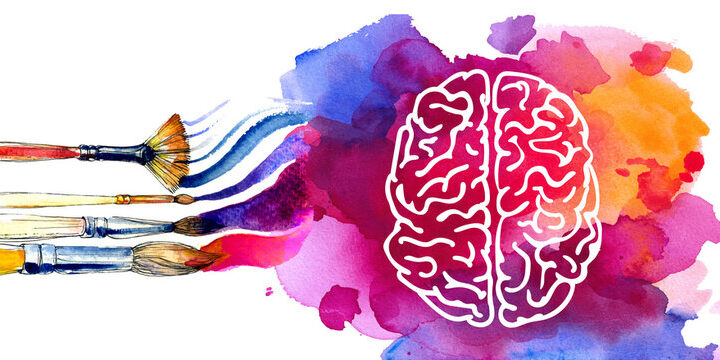
What is Psychology?
Psychology is a very diverse field, one that is expected to see tremendous growth.“Psychology is a scientific study that aims to understand human mind and behaviour” It has numerous applications in all walks of life-work, family, relationships, sports, education and in organizational space and so on. Psychology is a multidisciplinary subject, it encompasses various fields of science such as social science, biology, education, law etc.
History: The science of human behaviour emerged in Germany and emerged in Indian approximately 70 years ago. Indian psychology has come a long way since its uncertain beginnings early in 20th century. The All India Institute of mental Health (now National Institute of Mental Health and Neurosciences-NIMHANS) was established in 1954 at Bangalore to meet the demands of clinical psychologists. Now psychology is taught at numerous Indian universities and psychologists have proven themselves in a broad variety of clinical, educational, social and organizational settings.
Generally, people get confused between a clinical psychologist and a Psychiatrist. Psychiatrists are required to first complete their MBBS, and they study Psychiatry as a subject in their MD. They can prescribe medicines where as a clinical psychologist only applies therapies with the clients. Hence, a psychiatrist and a clinical psychologist to work together as a team.
- Counselling psychology
- Industrial and organizational psychology
- Forensic psychology
- School psychology
What does Psychologists do?
- Conduct scientific studies of behaviour and brain function
- Observe, interview and survey individuals
- Identify psychological, emotional, behavioural or organizational issues and diagnose disorders.
- Discuss the treatment of problems with clients.
- Write articles, research papers and reports to share findings
- Supervise interns, clinicians and counselling professionals.
- They seek to understand and explain thoughts, emotions, feelings and behaviour. For this they use various techniques such as observation, assessment and experimentation.
- They also administer various tests such as personality, performance, attitude or intelligence tests.
Working Conditions:
Psychologists may work in hospitals, schools, prisons, corporate offices and other locations. Specialty and field determine a psychologist’s working conditions.
For example, counsellors or psychologist might have private practices, have their own work place set their own hours and might offer evening or weekend hours to suit their patients. But psychologists working in hospitals might work mandatory shifts that include evenings and weekends. Overall, the working condition include:
- Work environment: Psychologist is essentially a desk job.
- Hours of work: The working hours of a psychologist is usually an 7-8 hours
- Health Hazards: Psychologists job isn’t a physically active profile. Most of the time is spent sitting at a desk, which can be detrimental to health.
Earnings: The newly qualified psychologist can get an average salary 20-35K per month.
Note: Pay scales can change from time to time and job to job based upon the work experience.
Methods of entering the job: Written exams, Group Discussion and Personal Interview
Personal attributes or skills required:
- Empathetic
- Confidentiality
- Communication skills (listening skills, responding skills, attention skills…so on)
- Questioning and Observational skills
- Interpersonal skills
- Ethics
- Patience
- Sensitive (to different cultures, genders and race)
To pursue psychology, one requires:
Subjects during the school
To be a Psychologist, you can opt for any stream in your 12th grade (psychology is not mandatory). It is advisable to take Psychology in school to have a basic understanding of the subject; however, it’s not a compulsion.
Graduation (B.A (H) in psychology/ applied psychology)
Obtain a bachelor’s degree in psychology from a UGC-recognized institution. A graduate degree will help build base in psychology.
The job opportunities are not in plenty after graduation. The top colleges that provide bachelors are as follows –
- Delhi University (New Delhi)
- Jamia Milia Islamia (New Delhi)
- Ambedkar University (New Delhi)
- Panjab University (Chandigarh)
- Banaras Hindu University (Varanasi)
- Christ University (Bangalore)
- Amity University
Post-Graduation (M.A/ M Sc in psychology)
Once you are done with your graduation, you can pursue post-graduation. Admission to the various colleges will be through entrance exams or your marks in graduation. Different universities have different criterion. If you are from a different background, you can still apply. At post-graduation level, you can choose your area of specialization. It is very important to pursue post-graduation, if you want to build a career in psychology.
Employment opportunities including self-employment:
Psychology in India is gaining importance, and its demand is on the rise. After post-graduation, you will get an opportunity to work in different areas, such as:
- Hospitals
- Mental health clinics
- NGO’s or social work centres
- Child and adolescent welfare centres
- Rehabilitation centres
- Corporate companies such as organizations or MNC’s as Human Resource (HR), relationship managers, Recruitment specialist etc.
- In education sector (schools and colleges) as a subject teacher, counsellors, career counsellors etc.
- Independent practice
For independent practice Clinical psychologists and Rehabilitation counsellors need to get registered with the Rehabilitation Counsel of India to practice legally.


thanks